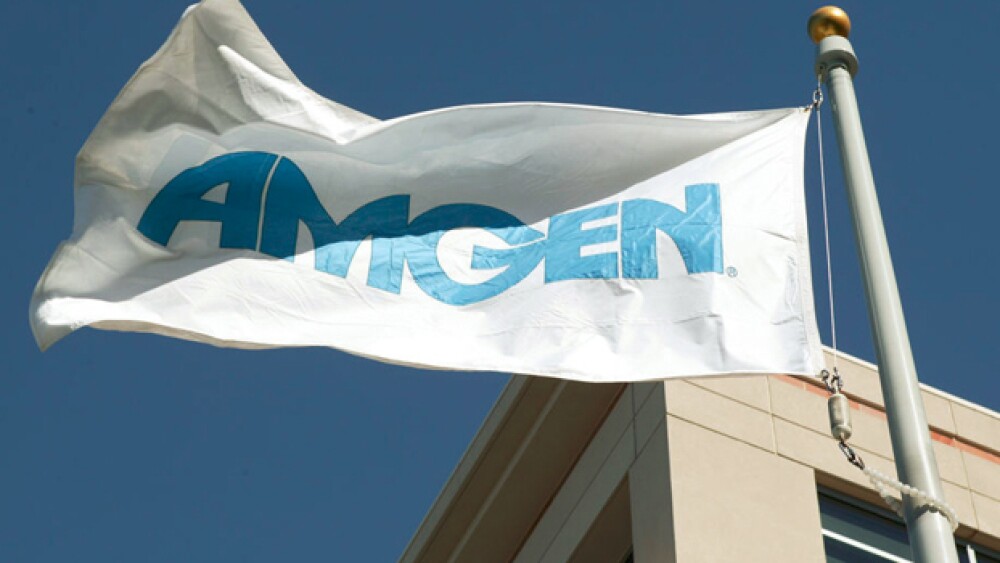Migraine sufferers may find some new relief as Amgen unveiled results from a late-stage study that shows its Phase III drug Aimovig reduced monthly migraine attacks in half.
Migraine sufferers may find some new relief as Amgen unveiled results from a late-stage study that shows its Phase III drug Aimovig reduced monthly migraine attacks in half.
Amgen, along with developmental partner Novartis, said the newly named Aimovig (erenumab) significantly reduced the number of “mean monthly migraine days” for patients. Not only did they see a significant reduction, Amgen said those patients were likely to see the number of migraines experienced in a month cut by 50 percent. Amgen published the Phase III data in the New England Journal of Medicine.
With the data revelation, Amgen surged ahead of competitors, such as Allergan and Teva, in bringing a calcitonin gene-related peptide (CGRP) receptor drug to market for migraine headaches. That will be good news for those who suffer from episodic migraines. CGRP plays a critical role in migraine activation.
Migraines impact about 12 percent of the population in the United States, including children. The pain and other symptoms associated with migraines can cause sufferers to completely stop what they are doing and prevent them from working or functioning in a normal capacity for more than a day. Episodic migraine sufferers typically deal with four to 14 migraine days per month.
Sean Harper, head of research and development at Amgen, said there is a “clear unmet need” for innovative migraine therapies. In a statement, Harper said the data published in the NEJM “underscores the significance” of a CGRP receptor blocker such as potentially becoming the first treatment targeting a pathophysiologically relevant pathway for migraine headaches.
“We look forward to advancing our robust clinical program for Aimovig in order to help ease the burden of this devastating disease and to best support the migraine patient community,” Harper said.
The Phase III study known as Strive enrolled 955 patients who experienced an average of 8.3 migraine days per month. Study patients who were given Aimovig at the 70 mg dose experienced a significant 3.7-day reduction in monthly migraine days. Of the patients who took the 140 mg dose, 50 percent of the patients had their migraine days cut by 50 percent or greater, the company said.
Amgen and Novartis are already looking at potential commercialization of Aimovig. The companies have filed for regulatory approval in the United States and in Europe. The U.S. Food and Drug Administration set a Prescription Drug User Fee Act (PDUFA) target action date of May 17, 2018.
In October, Teva submitted a Biologics License Application (BLA) to the FDA for fremanezumab, an anti-CGRP monoclonal antibody for the preventive treatment of migraine. Phase III clinical studies of fremanezumab demonstrated a significant reduction in the number of migraine and headache days.
In May, David Nicholson, Allergan’s head of R&D, told BioSpace that the company is moving forward with its CGRP programs. Allergan’s Botox is widely used as a treatment for migraines, generally reducing about 50 percent of headaches in 50 percent of migraine patients. A Phase III trial is examining ubrogepant, a CGRP antagonist, for the acute treatment of migraine. As a preventative, Allergan has a Phase II trial of another CGRP antagonist, atogepant. Nicholson said the oral CGRP treatments will complement the use of Botox for chronic migraine pain, particularly since the CGRP treatments are being developed as front-line treatments and Botox is used when many other treatments have proven ineffective.





